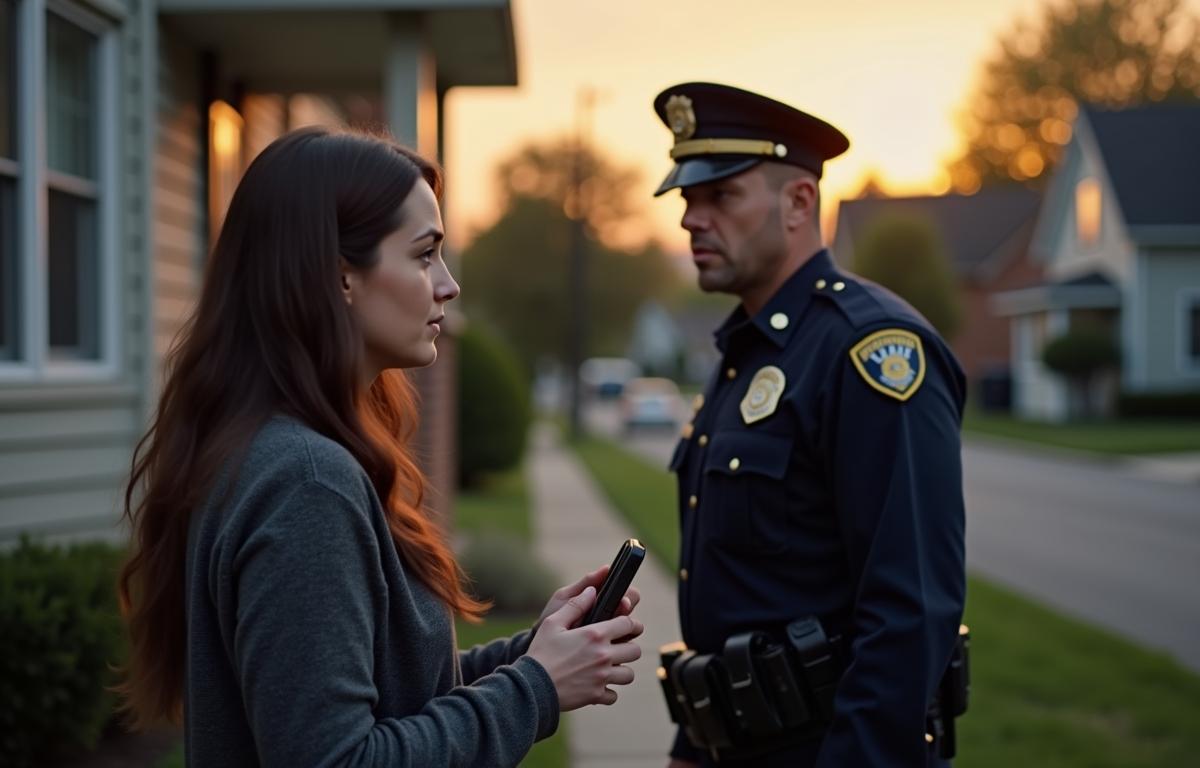If you are concerned, learn how to request a wellness check for someone’s safety. There are times when regular communication isn’t enough to confirm that someone is safe, so asking a trusted authority to visit them can deliver peace of mind and support.
It’s normal to worry when calls or messages go unanswered, or when a person’s behavior changes drastically without explanation. By taking the initiative to initiate a check-in request, you provide a valuable lifeline for anyone who might be in distress, whether it’s due to mental health concerns or everyday life challenges.
Contents
- 1 Recognizing the Right Moment to Take Action
- 2 Choosing the Appropriate Resources for a Safety Check Request
- 3 How to Communicate Your Concerns Effectively
- 4 What Happens During a Wellness Assessment
- 5 Working with Local Law Enforcement for a Health Status Review
- 6 Handling Potential Resistance or Denials
- 7 Following Up on a Wellness Intervention
Recognizing the Right Moment to Take Action
You may feel hesitant about making a health check request right away. Perhaps you fear overreacting to a situation or offending your friend or family member. Yet if your instinct says something is amiss, it’s usually a sign to look closer. If the person in question has missed essential appointments, stopped interacting with loved ones, or shown sudden withdrawal from society, then your concern for well-being is fully justified.
Delay could increase the risk of harm if the individual is dealing with an acute crisis. A police wellness check or a social wellness check can be vital in ensuring immediate help reaches them. While it might feel uncomfortable to involve local authorities or social services, acting promptly can prevent more serious consequences.
Choosing the Appropriate Resources for a Safety Check Request
A health and wellness check can be done through multiple channels, depending on urgency and needs. If a person is in serious danger, or you suspect self-harm, calling emergency services for a police wellness check or emergency contact visit is often the first step. Authorities can step in and conduct a health and safety assessment to confirm the individual’s status and offer immediate safety measures if needed.
In milder situations, you might reach out to community care or social services check-in programs. These can involve a quick visit to verify well-being and potentially connect the person to relevant support. Each route during wellness assessment and health evaluation offers a layer of reassurance that the individual is safe.
When Local NGOs Make Sense
Sometimes a nonprofit organization can perform a vulnerable person check without the formal presence of police. Certain charities focus on mental health evaluation or home safety visit initiatives. They may be better equipped for an emotionally sensitive approach, especially if the individual has existing trust issues with law enforcement. Exploring these options lets you choose a method that suits the person’s situation and comfort level.
How to Communicate Your Concerns Effectively
The way you explain the situation to authorities can shape the outcome of the wellness intervention. Clarity helps first responders, social workers, or even healthcare professionals understand the gravity of the scenario. Include details like how long the person has been out of touch, any alarming social media posts, or physical health check information you have noticed.
It’s also useful to mention whether your friend or loved one has a history of mental health conditions or physical ailments. Details regarding their social network, employment changes, or stressful life events can guide a more targeted approach. By painting a clear picture, you allow the responding team to act efficiently and compassionately.
Key Points to Emphasize
• Explain any changes in habits or mood.
• Note if the individual is prone to depression, anxiety, or isolation.
• Specify their last known whereabouts and potential triggers.
Remember, the goal is thorough well-being inquiry mixed with empathy.
What Happens During a Wellness Assessment
During a typical wellness assessment, the designated authority be it local law enforcement or a social services representative arrives at the individual’s residence for a personal safety evaluation. They knock on the door, attempt to communicate, and verify if the person is coherent, healthy, and not under immediate threat. If entry isn’t voluntarily granted, additional steps might be taken to ensure a safe and secure home check, depending on local laws.
In some cases, a family support assessment might be required if children or elderly individuals are involved. This process can expand into a broader physical health check or emotional well-being assessment, depending on observed circumstances. If professionals conclude that the person needs extra assistance, they might notify physicians, mental health counselors, or community care involvement for wellness follow-up.
Balancing Sensitivity and Urgency
Even though it’s crucial to act with decisive concern, it’s equally important to respect a person’s privacy. If your loved one is perfectly fine, they might express frustration over the perceived intrusion. Approach the topic gently if you manage to contact them. Emphasize that you sought a well-being verification because you value their safety, and assure them you won’t interfere if they maintain open communication going forward.
Working with Local Law Enforcement for a Health Status Review
When you opt for a police wellness check, the role of law enforcement is to evaluate immediate risks and confirm whether the person needs urgent help. They perform a health status review to ensure no danger is present. If the individual is found to be in distress, officers may coordinate an emergency service intervention or connect them with mental health professionals for a crisis management assessment.
Police can also assist in a risk assessment home visit, particularly if prior complaints or suspicious activities have been reported at the address. Their presence often deters threats that might come from outside factors, providing peace of mind to concerned friends and family.
The Importance of Follow-Through
A single safety check request might not resolve ongoing health concerns. Consistent wellness monitoring ensures you keep track of any new developments. Stay in touch with the individual after the initial visit to see if they need further support. If they require a more structured approach, encourage them to seek a mental health wellness check from licensed counselors or consider a physician wellness inquiry for regular medical attention.
Handling Potential Resistance or Denials
Sometimes, people deny they need any help. They might perceive your proactive health check as an invasion of privacy or feel embarrassed. In these moments, maintain a balanced tone of understanding and gentle persistence. Offer to connect them with resources for emotional well-being assessment. If they still refuse, remind them you respect their autonomy, but let them know you remain available for support.
If the situation shows signs of dangerous escalation, do not hesitate to request a wellness support request again. Trust your judgment. Even if they become annoyed, a life saved is worth more than a brief inconvenience.
Introducing Community Wellness Check Strategies
Many community programs promote social wellness check activities for neighbors or at-risk groups. By collaborating with these initiatives, you can help establish an ongoing network of care. They often have protective services check and elderly wellness monitoring protocols in place for seniors living alone. Building these links can prevent crises, and your loved one might find relief in knowing others are around to help.
Following Up on a Wellness Intervention
When the initial concern has been addressed, and the emergency has passed, remain engaged with the person’s progress. This might involve periodic calls or visits to confirm their well-being and keep lines of communication open. A wellness follow-up can range from a simple text message to a check-in request handled by mental health professionals.
Encouraging healthy lifestyle changes can also make a difference. Suggest regular physical activity or social interactions to maintain emotional balance. If necessary, recommend professional guidance, whether it’s therapy, counseling, or a family support assessment. The goal is to maintain a supportive environment that helps them bounce back and stay connected to positive influences.
Bringing It All Together
Your decision to reach out and pursue a health check request can be the turning point in preventing harm, offering emotional solace, and preserving relationships. Whether it’s a simple phone call to a friend of a friend or a request for community wellness check services, each action can safeguard a life. Offer reassurance by being consistent in your concern for their well-being, and remind them they are not alone. Effective wellness monitoring often involves a circle of people who genuinely care, so never underestimate the power of coordinated support.



